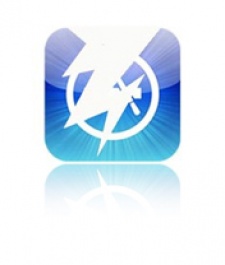Apple's decision to take a firm stand against developers utilising so called 'bot farms' companies that download an app over and over to ensure the app in question surges up the charts was hardly surprising.
The giant's decision to crack down on incentivisation tools in the past set a precedent, and one it was unlikely to back down from now.
It's important to understand just why Apple takes such a grim view of what it dubs 'manipulation tools', however.
This is no grand gesture to ensure the App Store remains a fair marketplace for all the studios operating on it, but rather an effort to secure the integrity of its ranking system.
Sweet (and sour) music
Bot downloads make a mockery of the App Store's charts, much akin to record companies buying their own cds to secure a hot spot in the top 40 in the past.
It's not hard to understand why some developers would be tempted to utilise such a service, however. Dare I say it, I'm not even 100 percent sure it's a bad thing.
For starters, the picture clears a little when you understand the App Store ranking system has never been a measure of what games are good, or even what games are popular. Unlike music charts, where there's a fair chance consumers have heard a song before they buy it, many App Store purchases are made blind.
As such, if you boil things down to this particularly polarised level, App Store rankings are largely a measure of how successful a game's marketing has been how well its promotion has connected with consumers.
What makes this whole system particularly precarious, however, is the rankings themselves are a promo tool.
Apps that make it into the top 25 are more likely to garner further downloads as a result, meaning titles that are already popular pull away from the competition and amass more and more users thanks to the rankings themselves.
Playing with promo
If you define the App Store rankings as a promo tool as a result - rather than a measure of good games - then manipulating them automatically seems less of a crime.
Indeed, bot farmers can even be seen as nothing more than a way to buy a slot on a legitimate promo platform.
Much like working with authorised third party promo tools or, if you're lucky enough, being featured by Apple hooking up with a bot farmer can secure your app a spot in the rankings that could lead to thousands of legitimate downloads.
Having heard how difficult it has been for developers behind decent, noteworthy titles to foster attention for their apps, I can't blame studios for wanting to catch a break like that.
In one regard, the bot farmers are a product of what I think is a disjointed promotional makeup that attempts to level the playing field for developers operating in a ridiculously crowded marketplace.
Farm farce
The real issue with bot farming, however, is that it appears to be in the hands of rather shady companies, operating under the cover or darkness - read: seemingly sending out emails to studios en masse.
Added to that is the fact the bots themselves aren't real people and, as a result, the whole process feels dodgy.
As such, there's little doubt the likes of Apple will move to block the studios that use them via every means possible. In the grand scheme of things, I think that's the right thing to do, too.
But as corny as it sounds we need to look at why such seedy promo tools have started to thrive, rather than chastising those that are moved to utilise them.
Opinion: Apple may have outlawed them, but are App Store 'bot farms' such a bad thing?
Getting caught up in the promo loop






















